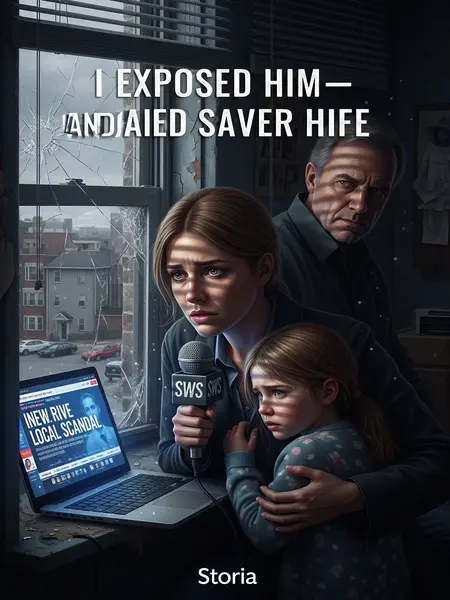Chapter 3: The Cost of Truth
He caught my gaze and quickly explained.
"Sorry about the mess. She can’t get up, so everything happens in bed. I try, but it’s hard. If she had a mom, maybe things would be better."
His voice cracked, on the verge of tears again.
There was something practiced in the way he blamed himself, like he’d said it to himself—and anyone who’d listen—more times than he could count.
There are two kinds of interviews I dread: one, talking to the bigwigs who make you sweat bullets; and two, dealing with someone like Dennis, who’s so good at playing the victim you almost forget to look for the truth. You want to believe them. That’s when you miss the truth.
I forced myself to switch gears, steering us back to my list of questions.
The interview went smoothly, but not well. Dennis dodged every important question, skating by with vague answers.
Like when I asked, "Did you run into any big problems getting her to the doctor?" He just shrugged. "Sure, it’s been tough. But for my kid, I’ll do anything. And I’m grateful for everyone who’s helped."
Instead of giving me anything real, he was using my questions to build his own narrative.
He was spinning a web, and I could feel myself getting caught in it. If I wasn’t careful, I’d be just another pawn in his story. I had to snap out of it.
Seeing I wasn’t getting anywhere, I wrapped things up, planning to do more research and come back for a second round.
He walked me downstairs. Just as I was about to leave, he called out.
"Ms. Lane, can I ask you something?"
"Sure."
"I, uh, don’t really know how to help her with... you know, that time of the month. My daughter’s at that age, and I’m just a guy—I don’t get it."
So I’d been right—the girl was having her period.
There was a vulnerability in his voice, but also a sense he was watching me, gauging my reaction. He looked down, but his eyes flicked up to see how I’d take it.
"Let’s exchange info. I’ll drop off some supplies for her tomorrow and text you about what to look out for."
After swapping numbers, I took my notes back to the newsroom, not expecting the storm that was waiting for me.
"Mariah Lane, news isn’t just about what you learned in school. Look at your interview—does it have any news value?"
My cheeks burned as my editor tore into me. I wanted to argue, but bit my tongue, fists clenched behind my back.
"The story’s already gone viral. Your job is to confirm the persona, paint the picture—sad father, sick daughter, harsh environment. That’s what gets clicks. Is it our job to track every cent? Just write about how pitiful they are, take the cameraman tomorrow, get more shots of the mess. Trust me, this will go viral. Use the public’s empathy. Don’t get hung up on the truth."
I didn’t agree, but rent was due. I couldn’t afford to make waves. So I nodded, promising to do another story and try to write something with more "value."
That night, I dove into every corner of the internet, searching for info on Dennis Carter and his daughter. Eventually, I found their livestream account.
He was live. Out of curiosity, I used my alt to join the stream—looked like he’d just started.
"Hey folks, I swear, I’d never touch your money. My daughter’s scleroderma got worse, we were in the hospital for two weeks. That’s why I haven’t streamed. But I’ll post the medical bills soon. Thank you all."
As he spoke, Dennis stepped back, hand over his heart, voice cracking. Then he broke down in tears, feeding his daughter her medicine on camera, spoonful after spoonful.
The chat blew up—crying emojis, Super Chats, virtual stickers. People sent digital gifts, desperate to help.
Viewers, seeing how desperate Dennis and the girl looked, sent more Super Chats and messages, urging him to take care of his daughter.
The editor was right—the controversy would fade fast, especially now that Dennis was streaming again. Doubts would die down. Sympathy would win out.
So the next day, I got ready early and brought along a box of pads and tampons, just like I’d promised.
With the cameraman, I walked through the neighborhood—trash piled by the curb, the smell of stale beer in the air—and knocked on 404.
"Mr. Carter, are you home? I texted you—hoping to do that follow-up interview."
Again, no answer. I figured he might be in the back room, so I knocked harder.
The door creaked open. My heart skipped. I pushed gently, and it swung wide, revealing the apartment inside.
Standing in the doorway, I raised my voice.
"Mr. Carter? Are you there?"
Even if Dennis was out, the girl—unable to move—should have heard us. But there was nothing. The silence pressed in on me.
A shiver ran down my spine. The silence felt wrong, like the air before a storm. Something was off. Way off.













